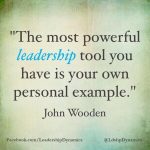 Meet Vincent de Klerk, founder of Comm&Sense, using psychology to support teams and individuals through change. As sustainability always calls for change within organizations and teams, I was very keen to learn more about his vision on sustainable change. Over a fantastic home-made lunch, we talked about psychology and leadership for sustainable change.
Meet Vincent de Klerk, founder of Comm&Sense, using psychology to support teams and individuals through change. As sustainability always calls for change within organizations and teams, I was very keen to learn more about his vision on sustainable change. Over a fantastic home-made lunch, we talked about psychology and leadership for sustainable change.
Striving for balance
 “Change is challenging for people, as it is our nature to strive for balance and belonging. Some perceive change as too time-consuming compared to the benefit it might deliver. They’re simply too busy to get started for an unsure outcome. Even if people believe change is needed, they might still not move in the right direction. They could be afraid of driving change alienating them from the group. Basic human behaviors like this can easily lock up the system and prevent change.
“Change is challenging for people, as it is our nature to strive for balance and belonging. Some perceive change as too time-consuming compared to the benefit it might deliver. They’re simply too busy to get started for an unsure outcome. Even if people believe change is needed, they might still not move in the right direction. They could be afraid of driving change alienating them from the group. Basic human behaviors like this can easily lock up the system and prevent change.
The other’s perspective
 Insight into psychology and human consciousness helps me support people to deal with change. There’s so much that we, as people, are simply unaware of – and that could therefore get in the way of change. So change processes really need to be grounded in a thorough understanding of the perspective of the people that most resist change. What are they aware of? What kind of information could help them raise their level of consciousness that will help them see how they can benefit from change, rather than fear it? How do they link (or not) the change at hand to their daily work, to the business? How does this change fit into their personal development plan? And to help everyone stick to change, it is key to translate lofty goals into concrete action steps, as close to the individual daily business reality as possible.
Insight into psychology and human consciousness helps me support people to deal with change. There’s so much that we, as people, are simply unaware of – and that could therefore get in the way of change. So change processes really need to be grounded in a thorough understanding of the perspective of the people that most resist change. What are they aware of? What kind of information could help them raise their level of consciousness that will help them see how they can benefit from change, rather than fear it? How do they link (or not) the change at hand to their daily work, to the business? How does this change fit into their personal development plan? And to help everyone stick to change, it is key to translate lofty goals into concrete action steps, as close to the individual daily business reality as possible.
Vulnerable leadership
 It’s so important to have a true commitment from the organizational top in times of change. Yet, that doesn’t mean leaders have to have all the answers. By being vulnerable and honest that they sometimes don’t know how either, they open up new avenues for collaboration. And team members are more committed to stick to an action plan if they co-created it.
It’s so important to have a true commitment from the organizational top in times of change. Yet, that doesn’t mean leaders have to have all the answers. By being vulnerable and honest that they sometimes don’t know how either, they open up new avenues for collaboration. And team members are more committed to stick to an action plan if they co-created it.
And there’s more leaders need to do in times of change. Besides listening to people in the co-creation of change plans, they also need to thank people for past contributions. Especially if that work no longer fits in the new plans, it is key to recognize people for it and give explicit permission to let it go. And, of course, leaders also need to live the change themselves. Change is about them, too, so they really need to set an example of the new desired behavior.
Structural maintenance
 Even with a great co-created plan and leaders living the change, the outcome can still fall short of the goals. For everyone in the team, it is all too easy to slip back into old patterns. As we’re all used to the old ways, this may even go unnoticed. As well, people may leave and join the team along the way, diluting a team’s initial shared commitment to change.
Even with a great co-created plan and leaders living the change, the outcome can still fall short of the goals. For everyone in the team, it is all too easy to slip back into old patterns. As we’re all used to the old ways, this may even go unnoticed. As well, people may leave and join the team along the way, diluting a team’s initial shared commitment to change.
To keep change going, there’s an important role for senior leaders, beyond living the change themselves. They need to keep driving change by rewarding the desired behaviors. And by enabling people and themselves to reflect on how well the change is progressing and what next set of concrete action steps are needed.
Psychology for sustainability
 Integration of sustainability into an organization or strategy also requires change. Unless people see the need for sustainable change from their own perspective, they’ll be more likely to strive for the balance of the status quo, instead of change. For sustainability-related change, personal conviction is an important starting point. People need to believe three things:
Integration of sustainability into an organization or strategy also requires change. Unless people see the need for sustainable change from their own perspective, they’ll be more likely to strive for the balance of the status quo, instead of change. For sustainability-related change, personal conviction is an important starting point. People need to believe three things:
- I can actually have a positive influence on the world
- my past behavior was not in the best interest of the world
- I want to and I can create meaningful change
With personal conviction in place, people don’t need to wait for others to lead change. Yes, there is a role for companies and governments to drive and support change, but in the end, it is always up to individuals to create change. This can be within an entrepreneurial setting, like Elon Musk championing electric driving and energy storage through Tesla. But also as citizens, like the people creating cradle to cradle houseboats in the Amsterdam canals.”
In parallel to supporting companies, teams and individuals during a change, Vincent is writing a book about the psychology of change. I’m sure this will offer excellent food for thought and actionable advice for people driving sustainability-related change! For more information on Vincent and his work, please check out his LinkedIn profile or his website.
Interview by Marjolein Baghuis (@mbaghuis) for Change in Context. To read about other interesting people, book reviews and other posts about change, communications and sustainability, please subscribe.

My latest blog post: an interview with an expert on the psychology of sustainable change https://t.co/nml3odFsFw
I learned (and ate) a lot during this interview about the #psychology for #sustainable change https://t.co/nml3odFsFw